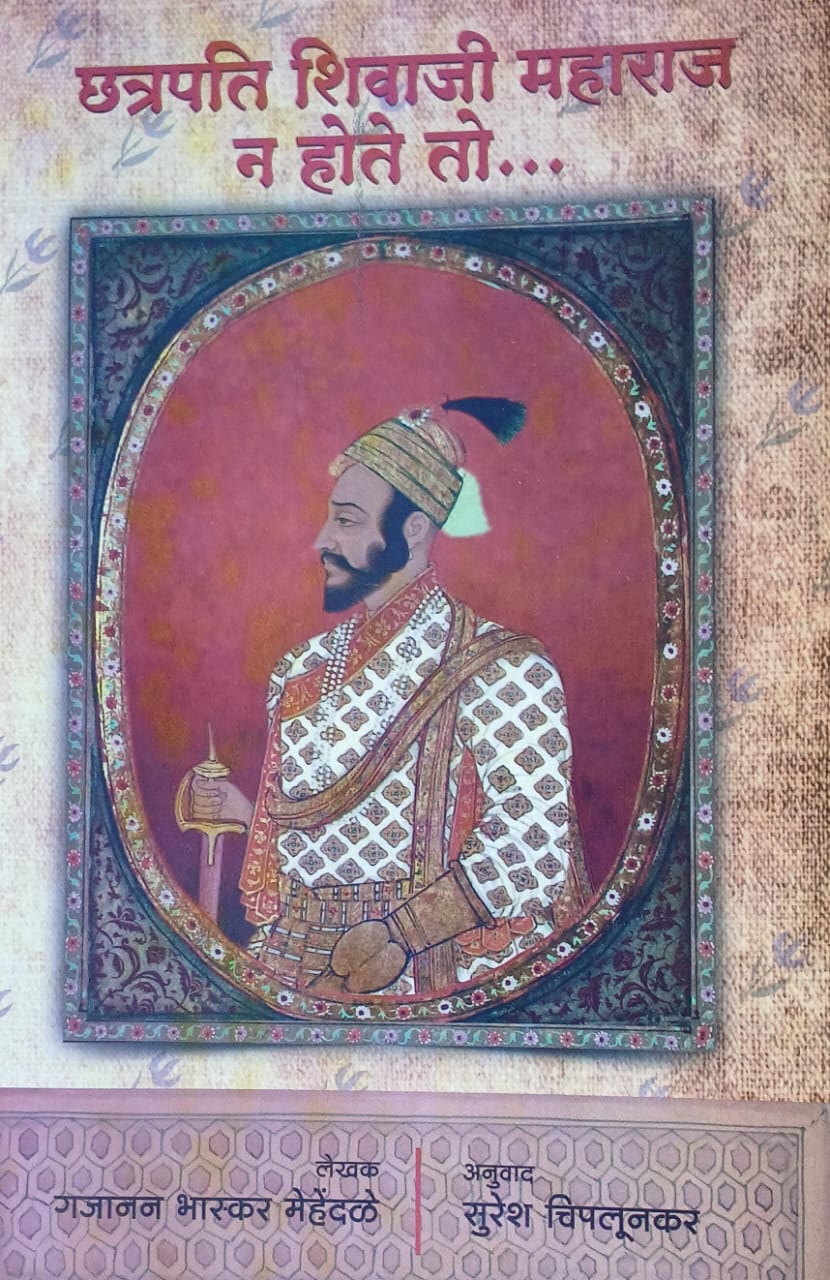Description
About the book :
In the book ‘Shivaji and Suraj’, the author points out how out of the 36 years of his public life, Shivaji spent only about 6 ½ years in the field fighting battles and throwing out the enemy from his land. The rest of his life was spent in erecting a strong system of good governance.
With examples galore showcasing Shivaji’s main ministries such as Finance, Home, Agriculture, Science and Technology and even Language and Culture; not to mention ministries such as Environment, Women & Child Development and Land Use – all issues that have gained currency in recent years – Dave draws parallels to the lacunae in the contemporary system and its poor governance practices. He exhorts today’s administrators to look at Shivaji’s good governance practices as a blue print for a successful government involved in the welfare of its people.
Dave also establishes the great Maratha warrior’s foresight in planning and implementing decisions, which can also be useful for rulers and administrators across the world today. The book has a liberal sprinkling of examples of how western and oriental travelers, thinkers and war strategists have praised Shivaji for his qualities as an able administrator.
Some excerpts :
• The king (ruler or administrator) should fix a time for his meals. Normally, he should not alter them. A king (administrator) must not consume intoxicants. He should also not permit persons close to him to indulge in such substances. If a king is without a weapon, he must not stare at the ground for too long.
• What was the size of the personal treasury (of the leader) and the royal one while taking oath before the commencement of his task? What was the difference between both treasuries when he finally quit the scene? The difference is the measure of his financial probity and character.
• Shivaji — “Kanhoji, I had promised you not to award him the sentence of death, which I have kept. But had I not punished him (Khandoji Khopda), the message that would have been conveyed to the people is that influence and contacts can trump even a crime as grave as treason. Would that have been proper for Swarajya?
• It is therefore the duty of every leader to detect and isolate traitors from his system, punish him and remorselessly prevent the tendency of betrayal from developing.
• Jungles in Swarajya also have plenty of mango and jackfruit trees, whose wood can be used in the building of ships, but these should not be touched, as these aren’t tress that can grow to their fullest in only a couple of years. The people have planted those trees and looked after them like their own children.
ISBN : 9789351865124 ; Prabhat Prakashan ; Hard Back
About the Author :
The author Anil Madhav Dave was born on Vijaya Dashmi in Barnagar, Ujjain in Madhya Pradesh. His early education took place in various regions of Gujarat where his father was posted as an employee of Indian Railways. He became a swayamsewak of the Rashtriya Swayamsewak Sangh (RSS) in 1964. Later, he went on to complete his M.Com. from the Gujarati College at Indore, specializing in Rural Economy and Management. His was also the president of the students’ union while at college. He was employed for a while and has also dabbled in business.
Anil Madhav Dave was instrumental in setting up the Jan Abhiyan Parishad (an organization in Madhya Pradesh that endeavours to give concrete shape to the vision and practice of voluntary organizations). He was the founder of Narmada Samagra and also a committed environmentalist. Many of his essays on contemporary topics and poems were been published. Anil Madhav Dave was a student of Indian folk and elite traditions and is a former editor of the monthly magazine Charaiveti. He was a Member of Parliament in the Rajya Sabha.
CONTENTS
Preface xi
Introduction —Pgs. xix
Foreword —Pgs. xxi
Prologue —Pgs. xxv
The Making of an Icon —Pgs. 1
Major Qualities of a Leader (Icon) —Pgs. 9
The Beginning —Pgs. 9
Assessment —Pgs. 15
Conviction —Pgs. 25
Fearlessness —Pgs. 35
Chief Departments of Shivaji’s Administration (Swarajya) —Pgs. 43
Ministry of Finance —Pgs. 43
Ministry of Home —Pgs. 63
Ministry of Agriculture —Pgs. 73
Ministry of Law and Justice —Pgs. 91
Ministry of Foreign Affairs —Pgs. 109
Ministry of Commerce and Industry —Pgs. 119
Ministry of Science and Technology —Pgs. 133
Ministry of Roads and Maritime Affairs —Pgs. 141
Ministry of Labour and Employment —Pgs. 149
Ministry of Language and Culture —Pgs. 161
Ministry of Defence —Pgs. 173
Public Relations —Pgs. 185
The Standouts of Swarajya —Pgs. 195
Forests and Environment —Pgs. 195
Women’s Empowerment —Pgs. 195
Minorities —Pgs. 197
Stance against Corruption —Pgs. 203
The Self-inspired Polity and Rule —Pgs. 204
Personality —Pgs. 209
Foresight and Political Initiatives —Pgs. 215
Planning and Implementation —Pgs. 223
The Council of Ministers (Ashta Pradhan) —Pgs. 235
The Enduring Glory —Pgs. 245
Features of Good and Bad Governance —Pgs. 253
The Jaanata Raja Dialogue —Pgs. 267
Bibliography —Pgs. 270
References —Pgs. 272
शिवाजी व सुराज in Hindi
Book in Telugu :
శివాజీ స్వారాజ్యం నుంచి సురాజ్యం దాక Shivaji Swarajyam Telugu








Sachin P – :
Enjoyed reading it. Moves beyond just fighting and explains his administration abilities and concepts. High quality hard-cover book – just like the quality of material used and the print quality.
Ram Babu – :
Buy this book eyes closed, a gem of a book that can be a good coffee table book. Can be read in small installments of time even when you have just 5 minutes. Something good to read whenever you have some free time.
PS Rao – :
Must read book for every fan of Shivaji. So many good things about this book – don’t know where to start. Lot of original material and the 22 original eddicts of Shivaji are very insightful to understand the greatness of Shivaji.
Has an intro by Sri Narendra Modi, the author Anil Madhav Dave has toiled hard to get this masterpiece of a book published.
Took quite some time to get the English version of this book Shivaji and Suraj. Thank you Hindueshop for your help in finding this book and for helping me understand the legend of Shivaji.